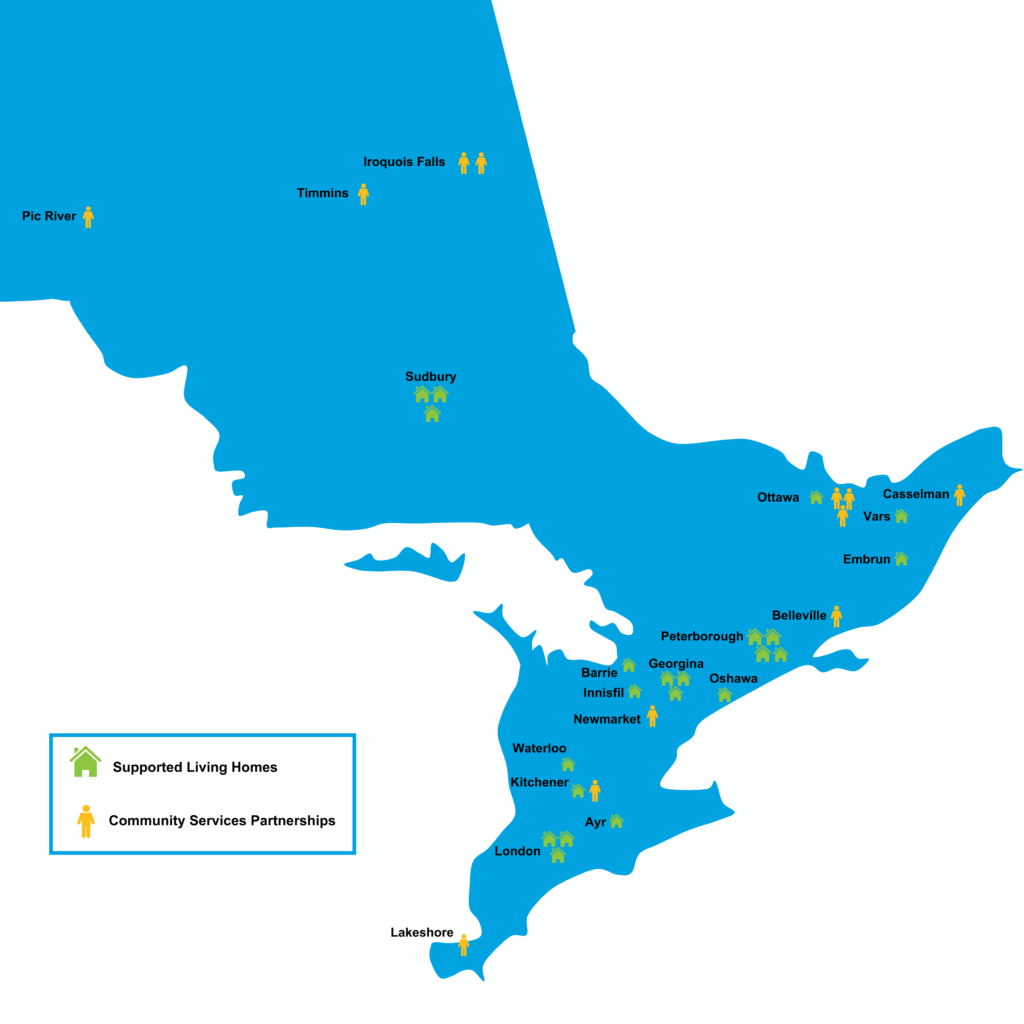Find Services Near You
DeafBlind Ontario Services is one of the largest service providers for people with sensory loss or communication challenges in Ontario.
Content Columns
Supported Living Homes
- Ayr
- Barrie
- Embrun
- Georgina (3)
- Innisfil
- Kitchener
- London (3)
- Oshawa
- Ottawa
- Peterborough (5)
- Sudbury (3)
- Vars
- Waterloo
Community Services
- Belleville
- Burlington
- Casselman
- Hawkesbury
- Iroquois Falls (2)
- Kitchener
- Lakeshore
- Newmarket
- Ottawa (3)
- Pic River
- Timmins

